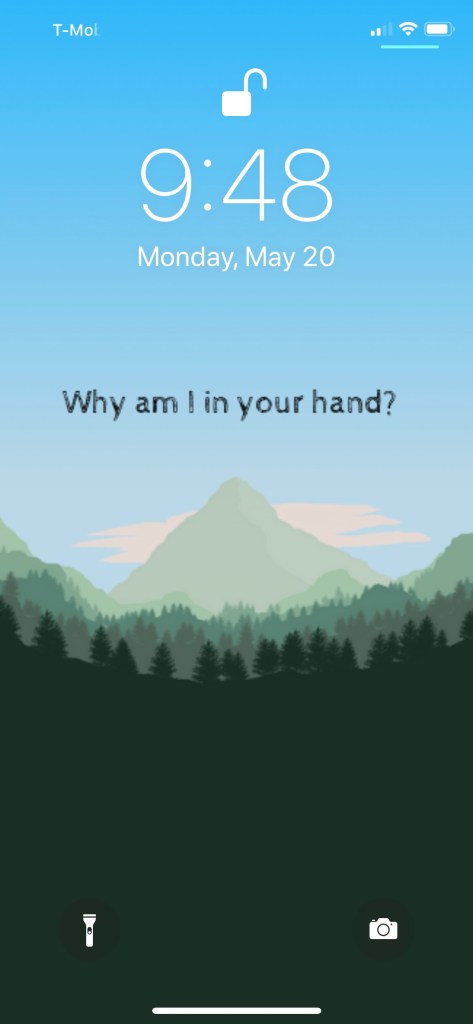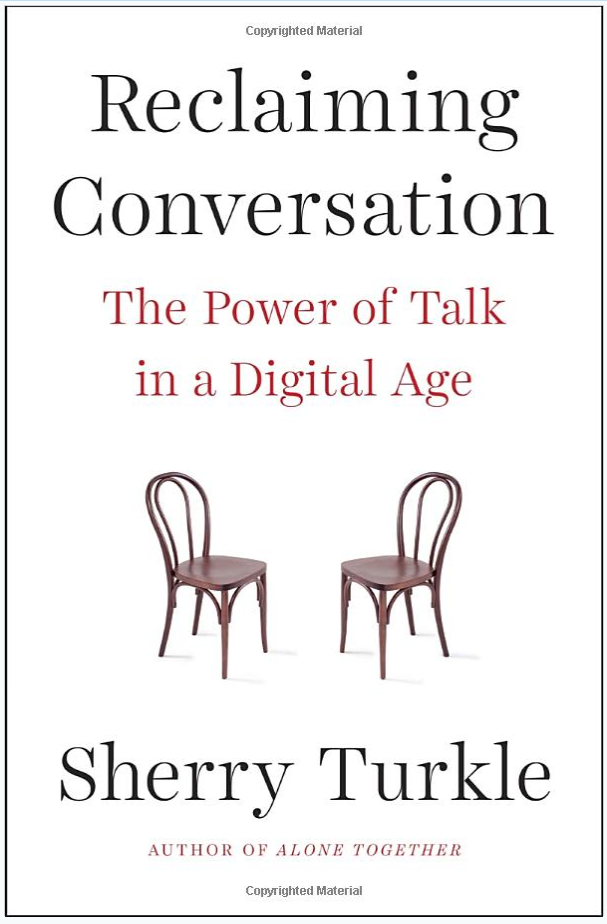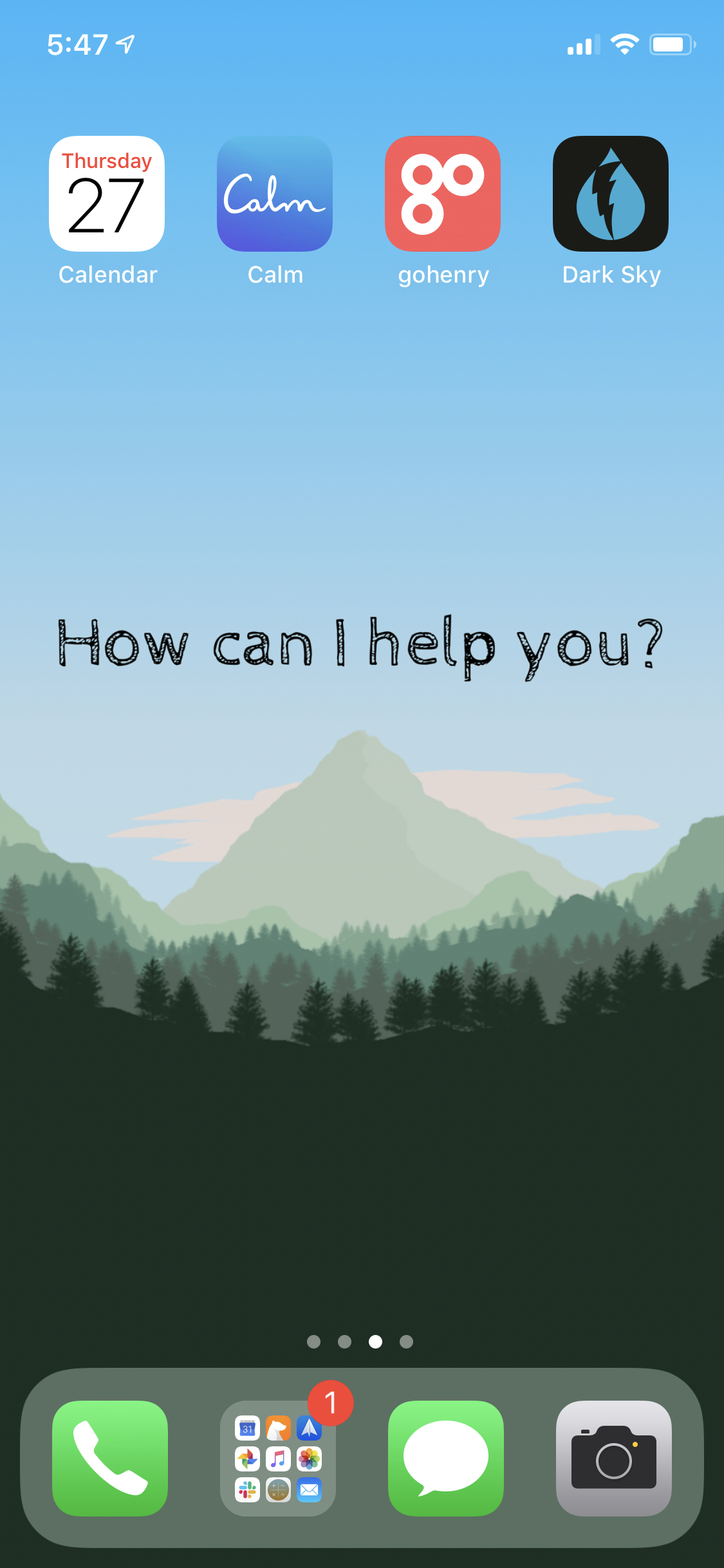
I don’t like smartphones. I have one. But I don’t like it. For close to a year I’ve been trying to figure out how to detach myself from the tiny computer in my pocket. There have been some successes. More failures. And the battle continues between who I want to be, and the reality of life with constant access to…kind of…everything.
My most recent success has been an effort to make my phone more difficult to interact with on a daily basis. I have most of my apps buried in a single folder, and the only way to get them is voice search (or painstaking manual search in the folder). That means when I turn to my phone it’s for a reason. I have to ASK FOR SOMETHING. And when I get what I’m after, then I’m done using the phone for the time being. This has worked remarkably well, as long as I’m intentional.
I’ve also modified my lock screen and my home screen to remind me that my phone is a tool, not a time-suck. The lock screen literally asks me “Why am I in your hand?” I usually have a good reason; sometimes I don’t… Then the home screen reinforces the theme by asking “How can I help you?” Because that is what the smartphone is for, when you get down to it. I’ve always held to the idea that if your technology is not making your life better then it isn’t doing it’s job. And losing hours upon hours every day to social media browsing, news reading, and game playing is not making life better, at least in my opinion. Side note: I have zero mobile games on my smartphone.

This is a parenting with tech post, so here’s the parenting angle. I started reading up on kids and tech several years back. It all started with a post I read on Medium about how technology gives us hundreds of “connection points” but does not foster a habit of conversation with our family, friends, and neighbors. Sherry Turkle’s book, “Reclaiming Conversation” makes an argument that a big piece missing in our society today is conversations (with ourselves, our friends/family, and our community at large). This led me down a rabbit hole of books on this topic. After an interesting conversation with my kiddo I discovered that I was reading books that reinforced my own perspective and didn’t’ challenge it (right as I’m telling the kiddo to make sure opposing arguments get their fair shake). So I went in search of another book that would challenge my own ideas of how kids should manage their tech.

I found a book that is really blowing some of the walls off of my preconceived notions (mixed metaphors there). The book is called “It’s Complicated: The Social Lives of Networked Teens” by Dana Boyd. This book looks from the kids perspective. It challenged the way I think about privacy, identity, and social media in particular. I discovered that the way I use my smartphone is not the way many kids use their smartphones. And I validated some of those studies with specific questions with my own kiddo. That does not mean kids aren’t out of balance with their tech, far from it, but they see social media as a much more positive part of their lives than I do my own. They aren’t wasting time on their devices nearly as much as I was before my personal intervention. It’s just the evolution of the old land-line, in a world that closes more and more of the public arena off from kids (even malls are shutting teens out in many cases). This book did not change my mind completely, but it gave me a wider view and added nuance to my own perspective, which was kind of the point of telling my kiddo to be open to other ideas.

So in our house we try and be intentional about our phone use. It’s a constant battle with the kiddo, but it’s more about the battles than the war these days. And we are intentional about our conversations. I require that we speak face to face on a daily basis about topics that we are reading about, listening to on podcasts, or are talking with other people in our lives. And THAT has been the biggest success. By intentionally putting down the phone in order to talk to each other, we discover the value in face-to-face interactions, and grow closer, learning more about each other in the process. So that is my encouragement today. Taking phones away as a punishment isn’t probably going to work for real lasting change. I think it’s more important to make placing the phone down as a positive move to allow conversations that can lead to real lasting changes in our lives and the lives of our kiddos.